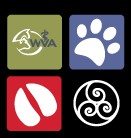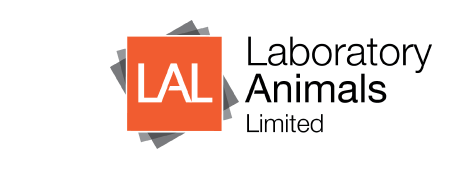 WVA: Promoting Diversity and Inclusion
WVA: Promoting Diversity and Inclusion
| Diversity refers to the characteristics and traits that make individuals unique, while inclusion refers to social norms and behaviours that make others feel welcome. In 2020, these are critical concepts for veterinary professional associations, veterinarians, veterinary educators, and veterinary students to grapple with, acknowledge, and promote within their associations, workplaces, colleges, and communities.
As we have seen recently and continue to see, systematic marginalisation of people because of colour, race, gender and gender identity, class or beliefs and the ensuing injustices and inequities that arise, create complex social imbalances resulting in lasting harm to people, but also create conditions of social permissiveness for ignoring the needs of animals and the state of our environment. These same types of single dominating visions allow societies to accept conditions for keeping and caring of animals that do not preserve animal integrity and interests, as well as methods of killing animals that do not recognise animal sentience and intelligence. A single-minded bias also allows societies to ignore the loss of habitat and biodiversity for short-term human financial gain. When a One Welfare framework is employed for promoting global human, animal, and environmental health and welfare, it helps to ensure that there can’t be a single dominating perspective or point of view. With this approach, human diversity, and more broadly, biodiversity, are seen as necessary for preserving the richness of life on earth. Preserving the dignity and integrity of people, animals, and environments (both social and physical) requires ongoing collaborations and dialogues. While these may seem like lofty aspirations for local, national, and regional governments to grapple with, we all have an individual responsibility to inform ourselves and to consider our own actions and behaviours as they relate to these subjects. Supporting diversity and inclusion is not about adding another layer of ‘political correctness’ to our associations, workplaces or schools – it requires transformation, a willingness and desire to ask questions and listen to and help others, and an openness to revision of longstanding thoughts and societal beliefs for the greater good. Promoting diversity and inclusion are important for ensuring that the veterinary profession remains relevant and resilient in a changing world. With sincere regards, Dr. Patricia Turner President, World Veterinary Association |
EARA forming animal transport working group

EARA will be represented on two IATA Live Animals and Perishables Board (LAPB) task forces. The first will look at improving the IATA-CITES collaboration, while the other will review regulations governing NHP transport (CR 31-34).
LAPB develops regulations for the acceptance, handling and loading of live animals in air transport, compiled in the Live Animals Regulations manual. The next meeting will be in Miami, USA, in October 2020.
With the European Parliament being set to investigate EU animal welfare rules during transport, EARA would like to speed up the possibility of creating a working group of EARA members with expertise on the transport of research animals. If you are interested please contact Kirk directly atkleech@eara.eu.
LAPB site
EU Parliament investigating animal transport
MEPs have set up an inquiry committee to look into alleged breaches in the application of EU animal welfare rules during transport. The new inquiry committee will look at every aspect of Regulation 1/2005 and the alleged failure of the European Commission to facilitate the World Animal Health Organisation (OIE) mission to implement international standards on animal welfare during transport.
The committee will investigate alleged violations in the application of EU law on the protection of animals during transport and related operations within and outside the EU, including by air, road, rail and sea. The Committee has one year to complete its report which will include recommendations.
It will focus on how EU rules are being implemented by Member States and whether the Commission is enforcing them properly, including the alleged failure to act upon evidence that EU rules on moving live animals across the EU, and to third countries, are being infringed. The adopted version is not yet published, but the draft can be found here.
ECLAM news
2020 AGM and Annual Scientific Meeting
Our annual meeting will be held online in conjunction with the SGV and ESLAV on 24-25 November. If you are interested in becoming a committee or council member beginning in 2021, please let the Secretariat (ECLAM.assistance@gmail.com) know.
Strategic Planning underway
The ECLAM Council is developing a new 5-year strategic plan which will be presented to the members at the November AGM. The 3Rs of the plan are Revisit, Refine and Reach Out. We aim to revisit and refine the College’s processes and structure to better support the needs of our Residents and Diplomates, and to advance the College’s mission by reaching out to veterinary students and employers.
At the same time, our parent organisation, the EBVS, is also creating a new strategic plan. One objective is to attain recognition of EBVS specialities by the national competent authorities in EU Member States. Other possibilities include making residency training more compatible with personal and family obligations, and investigating multi-centre training programmes.
Examination Plans
With the cancellation of the 2020 ECLAM certification examinations due to the coronavirus pandemic, the Examination Committee is working on restructuring the exam format for the future. Projects include new software that allows the written examination to be taken at the candidate’s workplace (with invigilation) and assessing practical skills prior to the examination. This is becoming necessary due to the growing number of exam candidates each year.
Editors Wanted, Laboratory Animals
The journal (of which ECLAM is a subscribing member) is looking for two editors to serve on a volunteer basis to assist in managing the editorial process. Responsibilities include initial overview of manuscripts to assess overall suitability for the journal, ensuring that ARRIVE guidelines are met, and selection of section editors for review.
Qualifications include a background in lab animal science, experience in writing manuscripts for publication and conduct of critical review of manuscripts. Experience as a member of an editorial board or as a section editor is preferred.
This is an excellent opportunity to be involved in the publication process as well as to sharpen your skills in writing and critical review.
Please respond by the end of September; the preferred start date is December 2020.



